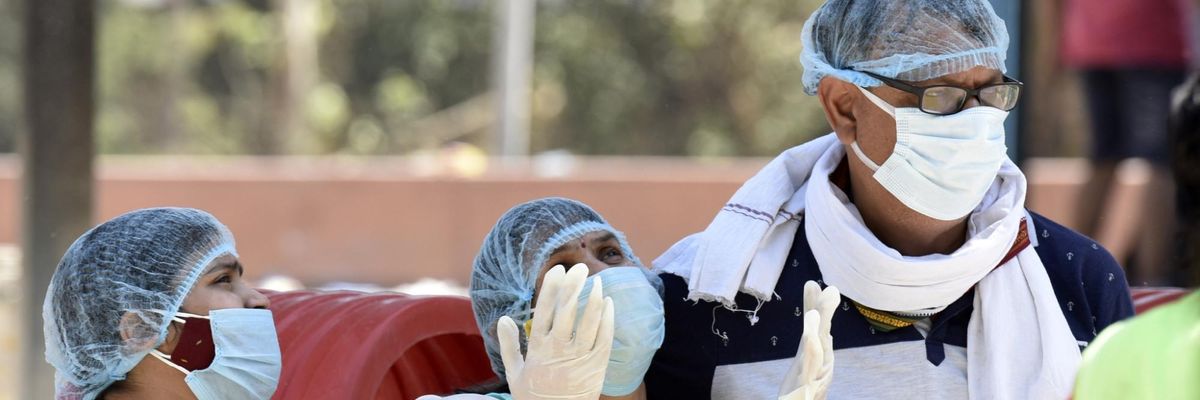In the face of rising public pressure, the Biden administration on Sunday partially lifted export controls on raw materials for coronavirus vaccines in an effort to help India combat a surge that is overwhelming hospitals and threatening to derail nascent inoculation campaigns in developing countries.
While welcomed by progressives who have been pushing the Biden administration to shift critical resources to India--which is experiencing the worst Covid-19 wave in the world--the White House is facing calls to take more sweeping action by supporting an international effort to suspend coronavirus vaccine patents, a move advocates say would allow India and other countries to quickly ramp up production.
"This is a start. But not nearly enough," U.S. healthcare activist Ady Barkan said Sunday in response to the Biden administration's decision to relax an export ban that was preventing India from obtaining key materials for the production of its Covishield vaccine.
"President Biden promised that intellectual property law would not block the Global South from producing the vaccine," Barkan added. "He must keep his word. Millions of lives depend on his choice."
In an interview with Barkan during the 2020 presidential campaign, Biden vowed to not let intellectual property (IP) barriers prevent other countries from mass producing coronavirus vaccines.
"It lacks any human dignity, what we're doing," Biden said of his predecessor's refusal to participate in global vaccination initiatives. "So the answer is yes, yes, yes, yes, yes. And it's not only a good thing to do, it's overwhelmingly in our interest to do."
However, since taking office in January, the Biden administration has upheld Trump's opposition to India and South Africa's proposal to temporarily waive sections of the Agreement on Trade-Related Aspects of Intellectual Property Rights (TRIPS), a step that would allow generic manufacturers to replicate vaccine formulas and bolster global supply.
Thus far, the vast majority of vaccine doses have been administered in rich and upper-middle-income countries as production remains largely under the control of a small number of pharmaceutical companies.
The Revolving Door Project (RDP), a government watchdog group, said Sunday that the Biden administration's new effort to supply India--which more than 70 nations rely on for vaccines--with key raw materials as well as therapeutics, test kits, and ventilators is "an encouraging first step."
But RDP argued that in order to "truly bring an end to global pandemic's carnage in India and the rest of the Global South," Biden "must go further and support the TRIPS waiver to lift IP restrictions on Covid-19 vaccines and treatment."
Several U.S. members of Congress, including Sen. Bernie Sanders (I-Vt.) and Rep. Jan Schakowsky (D-Ill.), echoed that call during a virtual event on Friday as the World Trade Organization prepares to consider the waiver proposal once again next month.
"We have the tools to save human lives, and those tools should be readily available to all people," said Sanders. "Poor people in Africa, Asia, Latin America, and throughout the world have as much a right to be protected from the virus, to live, as people in wealthier nations. To me, this is not a huge debate, this is common human morality."

